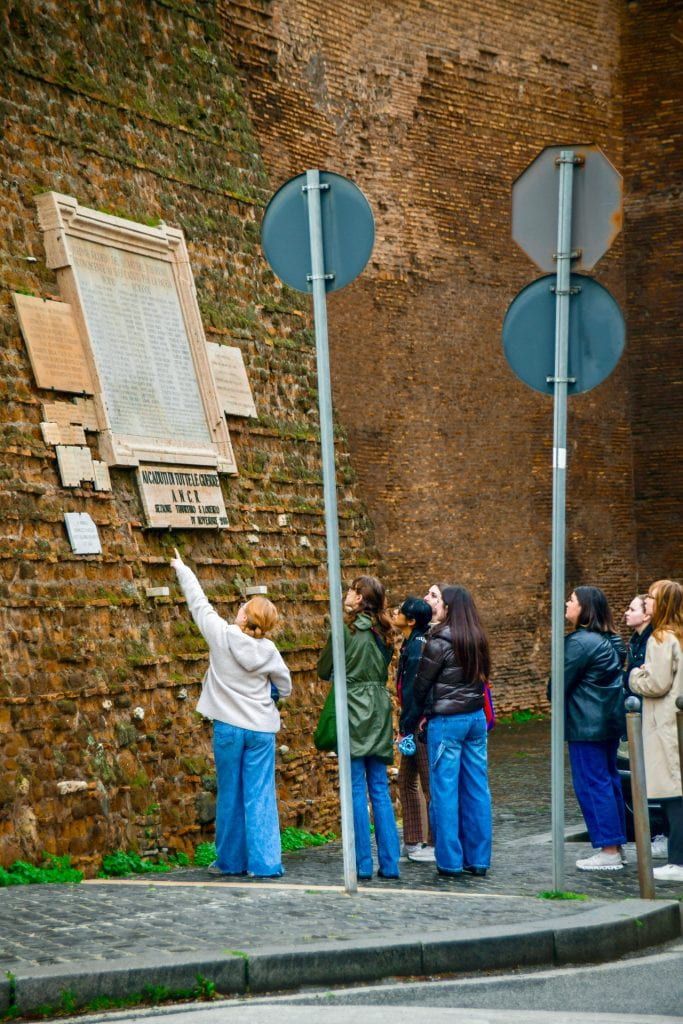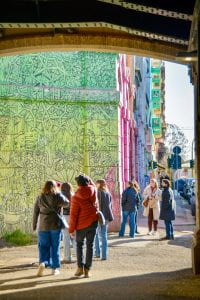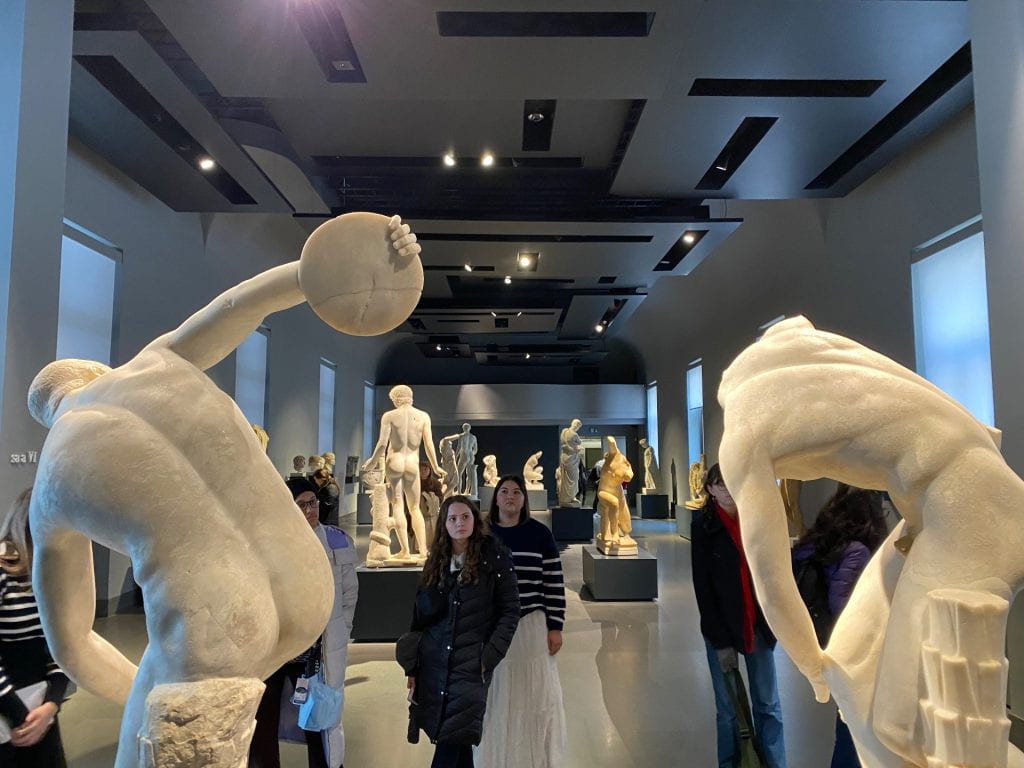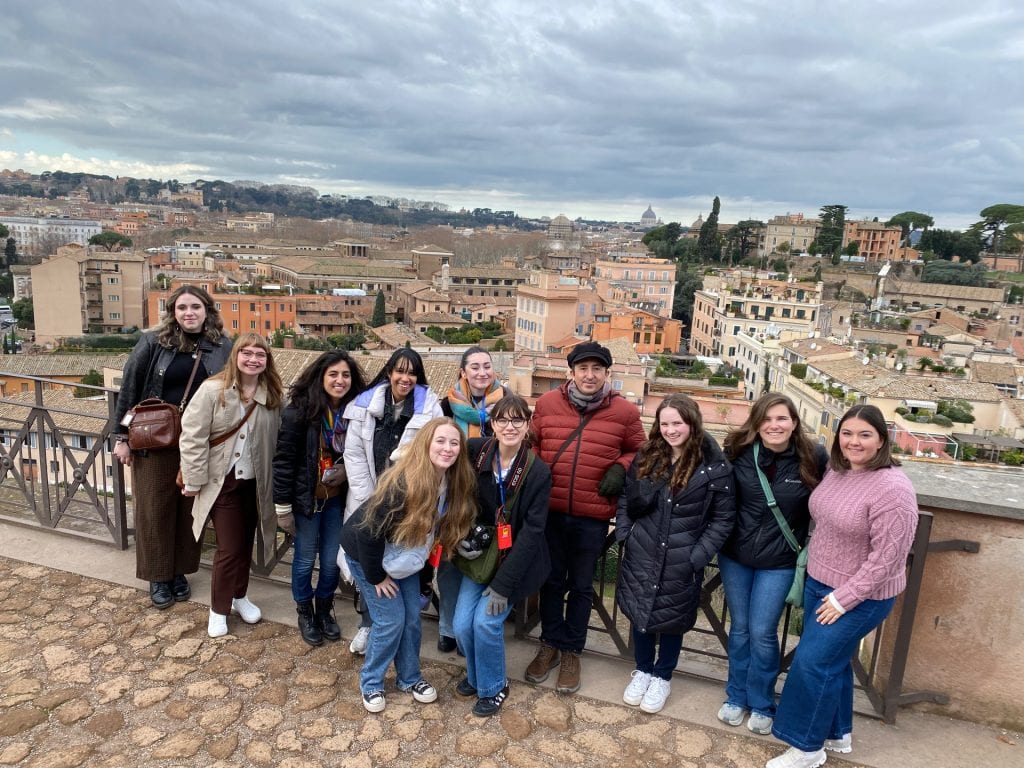 Rome is the quintessential site for examining the evolution of various cultural phenomena across millennia, the structuring of political power, intertextual relationships in virtually all of the arts, the development of religion, the aesthetic exploration of place, and more. The city stands as a theater of humanity where themes and questions can be explored within a deep historical spectrum, where artists and scholars are tested in their capacity to comprehend and relate to a tremendous complexity unfolding before their eyes and to the very essence of culture and human time.
Rome is the quintessential site for examining the evolution of various cultural phenomena across millennia, the structuring of political power, intertextual relationships in virtually all of the arts, the development of religion, the aesthetic exploration of place, and more. The city stands as a theater of humanity where themes and questions can be explored within a deep historical spectrum, where artists and scholars are tested in their capacity to comprehend and relate to a tremendous complexity unfolding before their eyes and to the very essence of culture and human time.
This January, a group of Chapman students across various majors spent two weeks visiting Rome’s major museums and most representative neighborhoods while designing and carrying out individual projects. The travel course is the fruit of a collaboration between Chapman’s Ferrucci Institute for Italian Experience and Research and the Borromini Institute in Rome. Students under the mentorship of Dr. Federico Pacchioni, interviewed experts in various fields, and collaborated with Italian peers from local universities.
 In the words of one of the students attending, Lauren Moyle, who is double-majoring in Creative Writing and History and minoring in Italian Studies: “To explore and study the past in a city so full of its presence at every turn was an experience I will never forget. Of the Eternal City, poet Percy Bysshe Shelley wrote: ‘Come to Rome——it is a scene by which expression is overpowered which words cannot convey.’ I have found this sentiment to be true, and I urge all those who can to come to Rome as well. It is a city that will remain eternal within me.”
In the words of one of the students attending, Lauren Moyle, who is double-majoring in Creative Writing and History and minoring in Italian Studies: “To explore and study the past in a city so full of its presence at every turn was an experience I will never forget. Of the Eternal City, poet Percy Bysshe Shelley wrote: ‘Come to Rome——it is a scene by which expression is overpowered which words cannot convey.’ I have found this sentiment to be true, and I urge all those who can to come to Rome as well. It is a city that will remain eternal within me.”
Another student, Kelly Taylor, majoring in History and Creative Writing and minoring in Honors, reflects, “I keep thinking about the quote on John Keats’s tombstone: ‘Here lies One Whose Name was writ in Water.’ I hear it repeated over and over in my head as I walk around the city. We all want to be remembered. Names without faces. Faces without names. And some in the invisible spaces who will never be recovered, seen, or called. But they can be felt. Here, in Rome, we remember. We remember humanity. And we experience it.”



